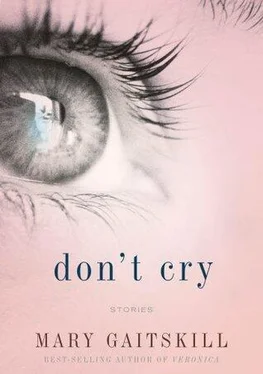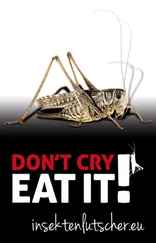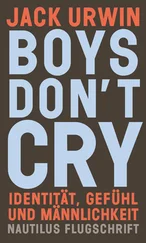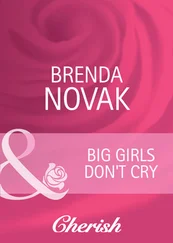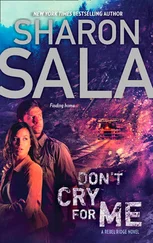A feminist author came to talk at the annual literary festival in Toronto, one of the good-looking types with expensive clothes who look younger than they are (which is irritating, even though it shouldn't be), the kind of person who plays with her hair when she talks, who always seems to be asking you to like her. She was like that, but she had something else, too, and it was that “something else” quality that made what she did so peculiarly aggravating.
Before I go any further, it must be said that I arrived at the festival tense and already prone to aggravation. I have been divorced for five years. I am the mother of a ten-year-old girl. My ex-husband is stalwart in his child-support payments, but he is a housepainter who is trying to be an artist, and out of respect for his dreams, his payments are not large. We met in graduate school, where I was studying creative writing, a dream-cum-memory rolling monotonously near the bottom of the subthought ocean. After years of writing in-brief book reviews, plus fact-checking and proofreading for an online magazine, I have recently begun writing full-length reviews (which means a little more money and a lot less time for playing “The Mighty Michelle” with Kira); for the first time, I have been assigned to “do” something light and funny on the social scene at the literary festival. The idea of proximity to so many actual authors may ve caused some more intense than usual subthought rolling, which is perhaps why a fight with my daughter got nastier than it had to this morning. It did not help that it was a fight about whether or not she can, at ten, bleach her hair “like Gwen Stefani,” and that the fight then had to turn into a discussion with Tom about how he had to be sure that while staying with him this afternoon, she did not somehow get hold of boxed bleach and take charge of the bathroom. Or, furthermore, that she not be allowed to persuade him that red might be okay if blond was not.
Still, for the most part, I was able to clear my mind of all this once I arrived at the festival. Writers from all over the world were there, people from Somalia, Greece, Israel, the United States, Italy and Britain. There were writers whod been forced to flee their countries, writers from police states, writers from places where everybody was starving; writers who wrote about the daily problems of ordinary people, the obscenity of politics and the pain of the lower classes, glamorous writers who wrote about the exciting torment of the fashionable classes. Writers with airs of gravity or triviality well-heeled or wearing suits they had probably rented for this event, standing at the bar with an air of hard-won triumph, or simply looking with childish delight at all the glowing bottles of delicious drinks and trays of foodstuffs. I glimpsed a smart blond woman on the arm of a popular author and fleetingly thought of my daughter: If she could see me here, she would feel curiosity and admiration.
But getting back to the “feminist author;” it is not really right to call her that, as she was not the only feminist there, as, in fact, her presence may have annoyed other, more serious feminists. She was a feminist who had apparently been a prostitute at some point in her colorful youth, and who had gone on record describing prostitutes as fighters against the patriarchy. She would say stupid things like that, but then she would write some good sentences that would make people say, “Wow, she's kind of intelligent!” Some people may ve said she should not have been at the festival at all, but why not? An event such as this is dazzling partly in its variety; it is a social blaze of little heads rolling by in a ball of light, and all the heads have something to say: “No one should ever write about the Holocaust again!” “Irony is ruining our culture!” Or in the case of the feminist ex-prostitute, “Women can enjoy sexual violence, too!” Well. I had been asked to write something funny, and the feminist author sounded pretty funny. I pictured her in a short skirt and big high heels, standing up on the balls of her feet with her legs bowed like a samurai, her fists and her arms flexed combatively, head cocked like she was on the lookout for some patriarchy to mount. An image you could look at and go, Okay, now for the author who says, “We live in an entertainment society and it's terrible!”
She was reading with two other people, a beautiful seventeen-year-old Vietnamese girl who wrote about rapes and massacres, and a middle-aged Canadian who wrote touching stories about his daughters. First the Vietnamese girl read about a massacre, then came the feminist writer. She immediately began complaining, but she did it in a way that made her complaint sound like a special treat we might like to have. Her voice was sweet, with a sparkling rhythm that made you imagine some shy and secret thing was being gradually revealed. I felt caught off guard; she wore a full-length skirt and little glasses and round-toed clog-style boots.
She wasn't going to read, she said; instead, she was going to give a talk about the way she had been treated by the local media, as well as by the festival organizers, who had described her in an insulting, unfair way in their brochure. I had not even read the brochure — I perhaps should've read it, but the information in such pamphlets is usually worthless — and from the look on other people's faces, they hadn't read it, either. The author, however, didn't seem to realize this. The brochure was not only insulting to her, she continued; it was an insult to all women, to everyone , really. They had ignored the content of her work completely, focusing instead on the most sensational aspects of her life — the prostitution, the drug use, the stay in a mental hospital, the attempt on her father's life — in a way that was both salacious and puritanical. “It isn't that these things aren't true,” she said in her lilting voice. “They are. I was a prostitute for six months when I was sixteen and I spent two months in a mental hospital when I was eighteen. But I have also done a lot of other things. I have been a waitress, a factory worker, a proofreader, a journalist, a street vendor! I am forty-five years old and now I teach at Impala University West!”
There were cheers, applause; a woman in the back fiercely hollered, “You go, girl!” The author blinked rapidly and adjusted her glasses. “I can even understand it,” she continued. “It's exciting to imagine such a kooky person off somewhere doing unimaginable stuff! I like the idea myself! But I am not that person!” It seemed to me that she kind of was that person, but right then it didn't matter. “And when we do that,” she continued, “when we isolate qualities that seem exciting, but maybe a little scary, and we project them onto another person in an exaggerated form, we not only deny that person her humanity but we impoverish and cheat ourselves of life's complexity and tenderness!”
This wasn't funny This was something wholly unexpected. We were all feeling stirred, like we were really dealing with something here, something that had just been illustrated for us by a magical, elfish hand. We felt like we were being touched in a personal place, a little like our mothers would touch us — a touch that was emotionally erotic. Like a mother, she seemed potent, yet there was something of the daughter there, too, the innocent girl who has been badly teased by an importune boy and who comes to you, her upturned face looking at you with puzzlement. Yes, she seemed innocent, even with her sullied, catastrophic life placed before us for the purpose of selling her.
She must've sensed our feelings, because she cut short her speech. We had been so kind, she said, that she wanted to give us something. She was going to read to us after all — in fact, she had her book right there with her, and she even had a story picked out. It was a story about a middle-aged woman dressing in sexy clothes to attend a party for a woman who writes pornography, which is held in a bar decorated with various sex toys. A good-looking boy flirts with the middle-aged woman, who allows that she is “flattered.”
Читать дальше
